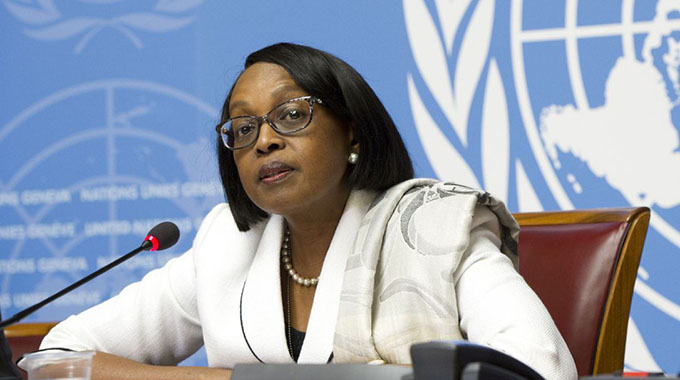WHO hails Zim health sector

Paidamoyo Chipunza Senior Health Reporter
Zimbabwe health system’s performance is at par with that of an upper-middle-income country despite it being in a low-income bracket with extended economic challenges, the latest World Health Organisation report on the state of health in the African region has revealed.
The report, released last week at the 68th session of the WHO Regional Committee for Africa taking place in Dakar, Senegal, to assess regional progress towards meeting the 2030 agenda for sustainable development, also noted that the country’s system investments were above the regional average.
The systems include access to health services, quality of care, effective demand for services and system resilience.
The report described Zimbabwe as a “low-income country with system performance of an upper-middle-income country. Tangible system investments are above average as compared to the regional average.”
In its comment section, WHO urged Zimbabwe to explore areas in which it share lessons with regional countries to establish effective system processes.
WHO also noted that overall life expectancy, morbidity and mortality rates in Zimbabwe were better than the regional average.
It, however, said the country must accelerate efforts towards reducing the burden of communicable and non-communicable diseases particularly in hard to reach populations, whose figures were found to be higher than the regional average.
The report noted that the country’s health status was low compared to what was expected to meet the Sustainable Development Goals (SDGs).
In her foreword, WHO regional director Dr Matshidiso Moeti said Africa had shown a significant improvement in health.
WHO was looking at health status in three dimensions, namely: state of healthy life, burden of diseases and burden of risk factors contributing to ill-health and death.
“The health and well-being of people in Africa is improving, a result of investments targeting the most pressing health needs in a context of a changing social, economic, political and environmental landscape. The people of Africa currently share a vision for the future that is filled with optimism and hope,” said Dr Moeti.
She said the latest report was not a country scorecard and must be used only as a compass to show countries their status in relation to different elements of health and where they needed to place emphasis to meet their targets.
“As a region, we intend to march towards the SDG targets together, leaving no one behind,” said Dr Moeti.
She said in this regard, platforms such as the WHO regional committee were necessary for member states to share experiences and best practices.
In overall, the report noted that although the top killer diseases were still lower respiratory infections, HIV and diarrhoeal disease, significant declines in deaths had also been noted.
“There has been a 50 percent reduction in the burden of disease scaused by what have been the top 10 killers since 2000 and death rates have dropped from 87,7 to 51,1 per 100 000 persons between 2000 and 2015,” reads part of a WHO press release.
Other countries that were commended for good practices in different areas of health include Algeria (good coverage of available health services), Cabo Verde (good community demand for essential services, and resilience of health systems); Kenya (good range of available essential services); Mauritius (good access to services); Namibia (good financial risk protection); Seychelles (good coverage of health related services) and South Africa (good health security).









Comments